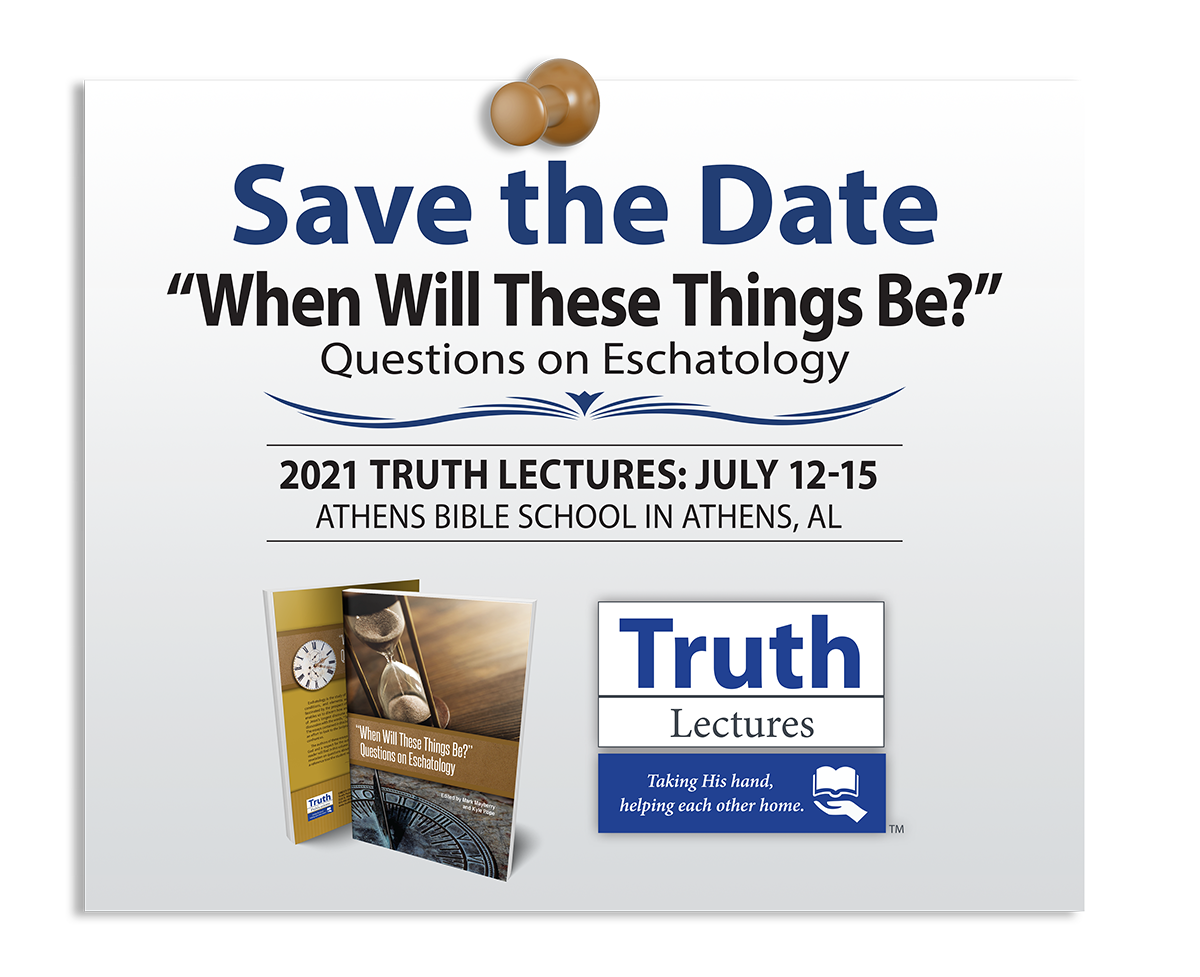
by Robert F. Harkrider
Synopsis: For those who disregard Lord’s invitation, the judgment will be a fearful occasion; yet, for those who are saved by His grace through faith, that day will be a time of victory and vindication.
The most sobering picture described in the Bible is the judgment scene recorded in Revelation 20:11-15. When Jesus is seated on the great white throne, the earth and the heaven will have fled away, i.e., the present system will no longer exist as we now know it (2 Pet. 3:10-13). Everyone will be gathered there—the dead, small and great, rich and poor, kings and slaves. All humanity will stand before the Lord, who has been ordained by God the Father to render judgment (Acts 17:30-31; Rom. 14:12). We will be judged according to our works, and anyone not found written in the Book of Life will be cast into the lake of fire.
For those who have spurned the gospel invitation, this is a a frightful time! Yet, for those who have been saved by His grace through faith, the judgment will be an exciting and wonderful time as we hear Him say, "Enter into the joy of your Lord."
What qualifies Jesus to be our judge? Will He be an understanding and righteous judge? To answer this question, consider a few of the different ways Jesus is described in the Book of Revelation. Each depicts a different aspect of His character and power. Follow with me as we survey various Scriptures that illustrate His divine purity and majesty. In fact, open your Bible as you read this article and become familiar with the context of each description of Jesus. They will inspire you with awe, reverence, and fear.
When John turned to see the voice that spoke to him, he beheld One like the Son of Man, who was clothed with a garment down to the feet and girded about the chest with a golden band (signifying His priestly role). His head and hair were like wool as white as snow (signifying His purity), and His eyes were like a flame of fire (signifying His penetrating vision). His voice was like the sound of many waters, and His countenance was like the noonday sun shining in its strength! John was no doubt overwhelmed by the sound of His voice and the brightness of His countenance. His first reaction was to fall at His feet and lie still as though dead. Then the Lord laid His right hand on John, saying, "Do not be afraid. I am the First and the Last. I am He who lives, and was dead, and behold, I am alive forevermore. Amen. I have the keys of hades and of death."
This description of Jesus as the "Son of man" reminds us that, although He is God, Jesus lived among us as a man. He can sympathize with our weaknesses because He was tempted in all points as we are (Heb. 2:18; 4:15). By His death on the cross, Jesus became the perfect sacrifice for our sins. As our High Priest, He entered the Most Holy Place to offer His own blood (Heb. 9:11-14). Having risen from the dead, Jesus is now glorified, seated at the right hand of the throne of the Majesty in the heavens (Heb. 8:1). Wouldn't you like to hear the words John heard? "Do not be afraid!"
Jesus is portrayed holding seven stars in His right hand as He walks in the midst of seven golden lampstands. We are told that the seven lampstands are the seven churches and the seven stars are the angels (messengers) of the churches (Rev. 1:20). Although details are different with each letter, two statements are repeated in all seven letters: "I know your works" and "to him who overcomes." Jesus walks among the churches. He knows what is taking place, both the good and the bad, the trials, and the suffering. He is not in a far distant place, unconcerned, but is continuously interested. We may deceive men, but God is not mocked. The Greek word translated "overcome" literally means "to conquer, to gain the victory." Take time to read the promises of reward given at the close of each of the seven letters and then compare them with the description of heaven revealed in chapter 22. By doing this, it will become clear why those who "overcome" will rejoice in victory!
The judgment day will be totally just, and man will not be able to equivocate because the Lord will see us as we really are. We shall be judged by our works. There will be no cover-ups or miscarriages of justice. While the omniscience of the Lord should terrify the hypocrite, it is comforting to all the faithful whose works do follow them when they enter the eternal rest (Rev. 14:13).
The heavenly throne of God is described in chapter 4 with honor and praise sung for Him by the twenty-four elders and four living creatures. As chapter 5 begins, John notices a book in the Father's right hand sealed with seven seals. The significance of this book is made known when the seals are loosed. This book contains the will of God. For example, when the fifth seal is loosed, John saw the souls of those who had been slain for the word of God and for the testimony which they held. "And they cried with a loud voice, saying, 'How long, O Lord, holy and true, until You judge and avenge our blood on those who dwell on the earth?'" (Rev. 6:9-10). The answer to their question could only be possible through the sacrifice of Jesus Christ. Where would we be if Jesus had been unwilling to die for sinful humanity?
Back in chapter 4, John heard the strong angel asking, "Who is able to open the book and to carry out the will of God?" At first, John wept because no one was qualified (i.e., no mere mortal—past, present, or future—will be capable of fulfilling the plan of God. Not even the faithful servants of past time like Abraham, Moses, or Elijah! While John bemoaned the thought of God's plan being left unenforceable, one of the twenty-four elders urged him not to weep. "Behold, the Lion of the tribe of Judah, the Root of David has prevailed to open the scroll and to loose its seven seals." Recall the prophecy made in Genesis 49:9-10 when Jacob was blessing his sons. He promised Judah (called a lion's whelp) that the scepter would not depart until Shiloh came. Remember also, David had been the great king of Israel who was promised that through his seed (root), one would sit on his throne and be established forever (2 Sam. 7:12-13. 16).
Both strength and royalty are promised. Yet, when John turned to see this "Lion," what he saw was a Lamb as it had been slain. This is a marvelous representation of Christ, who is both a Lion and a Lamb. How could one of such little strength as a lamb carry out God's purpose on the earth? Especially a lamb that seemed to have been slaughtered? Jesus Christ willingly permitted Himself to be slain to be the sacrifice for the sins of the world. In doing so, He achieved the ultimate victory for all mankind.
When we open the closing chapters of Revelation, one wants to shout with the great multitude in heaven who say, "Alleluia! Salvation and glory and honor and power belong to the Lord our God!" (Rev. 19:1). Although Satan fortified a world empire (Roman), attempting to abolish the kingdom of God, his allies are defeated and cast into the lake of fire burning with brimstone (19:20). The devil was bound for a thousand years (20:2), and also will ultimately be cast into the lake burning with brimstone (20:10).
The underlying message of Revelation rings loudly, "God is in control! Victory is in Jesus Christ!" Satan tempts us to compete with the majority in the marathon for social honors, financial success, and human prestige. When we stand before Jesus Christ to be judged, the only thing that will matter is whether we have served Him as King of kings and Lord of lords! 



